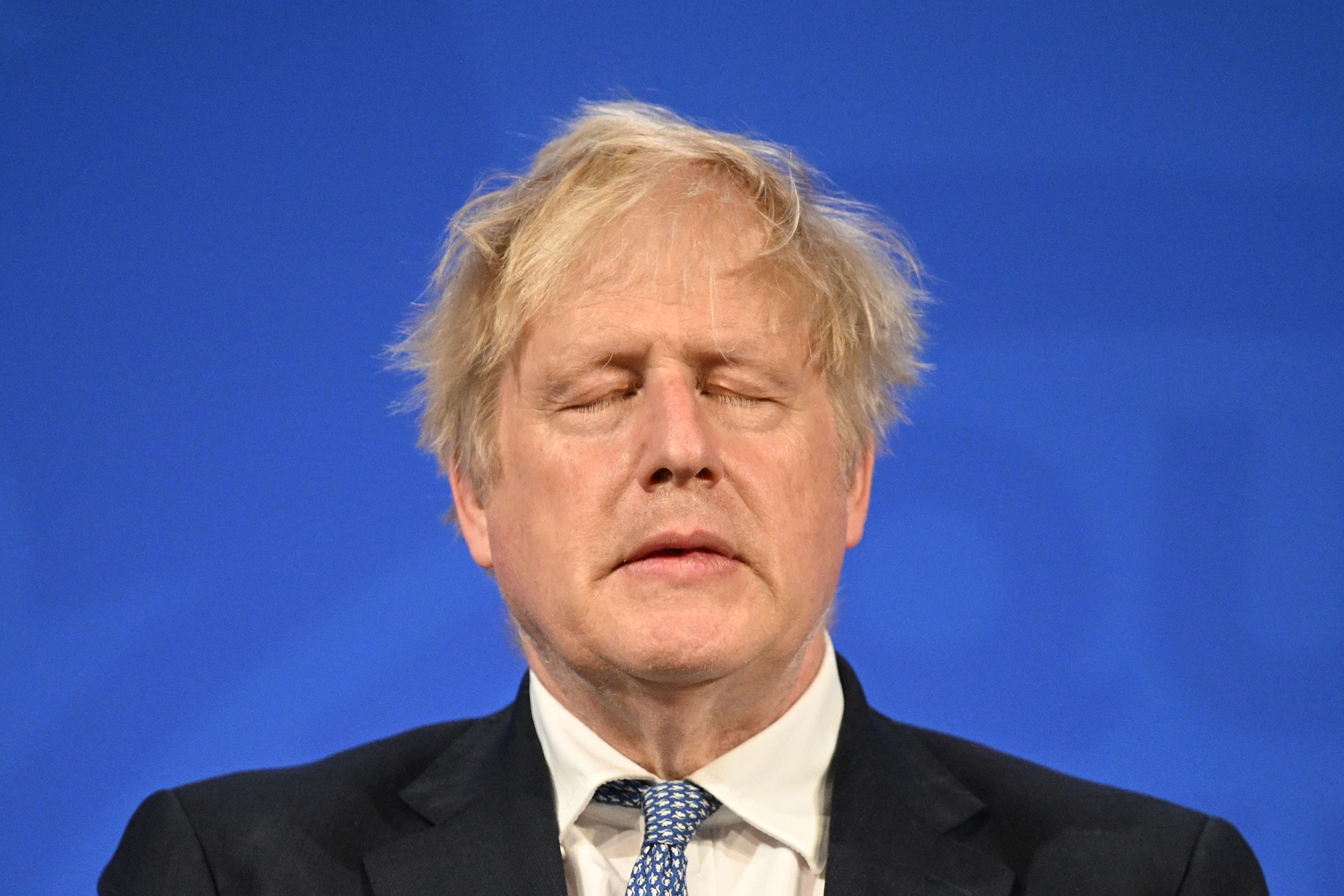What was the Tory party thinking?
Letters to the editor: our readers share their views. Please send your letters to letters@independent.co.uk

I watched the Channel 4 drama Partygate in a confused state of amusement, incredulity, and anger.
This thicker than The Thick of It real-life drama, symptomatic as it is of the current state of the country, raises a number of very serious questions.
First, how and why have those involved not been publicly named, shamed, and given the level of fines incurred by others committing far less egregious offences?
Secondly, how and why did the Tory party ever think such a man with no conscience, ethics, judgement, truthfulness, or genuine leadership qualities could ever be fit to be the prime minister of this country?
Thirdly, how and why can any right-minded member of the electorate believe that a party that chose Boris Johnson as its leader and which has governed for a 13-year period in which the NHS, state education, the criminal justice system, the police, the prison service, and public transport have been continually run down, while millions have been wasted on party donors who supplied often inadequate and overpriced PPE during the Covid crisis, should ever deserve their vote again?
The Conservative Party conference is over and, as I gather, the country’s problems can apparently be solved by banning the sale of cigarettes to children, abolishing A-levels, and keeping bus fares at £2. I remain in a confused state of amusement, incredulity, and anger.
Nick Eastwell
London
Supporting the restoration of Britain’s biodiversity
Britain, famous for its green and thriving natural beauty stretching from the rugged Highlands to the fells of the Lake District, the snowcapped peaks of Snowdonia to the emblematic white cliffs of Dover, has fallen woefully behind in maintaining these world-renowned habitats and vistas.
Ranking in the lowest 12 per cent globally for biodiversity, positioned last out of the G7 nations, and only above Ireland and Malta in Europe – the clock is rapidly running down for the British Isles to restore its pleasant pastures.
No longer is the response from a collection of dedicated organisations enough to slow this decline.
A green vibrant Britain should not be ringfenced in the minds of the public to only pertain to rural settings. The streets upon which we walk, the roads along which we drive or the parks in which we unwind must become protected spaces and habitats for flora and fauna alike to thrive.
After a decade of inaction from the government to safeguard biodiversity, Greener Britain, spearheaded by campaigning group Nature 2030, is mobilising a network of grassroots organisations. It plans to empower those willing to make a difference, reinvigorate both urban and rural areas, and restore the diverse ecological fabric of Britain.
Partnering not only with councils, environmental organisations, and campaigners but with nature itself, Greener Britain will advocate for improved biodiversity across Britain. In line with the United Nations 30x30 goal, the campaign calls for an increased preservation of 30 per cent by 2030 as a step towards repairing our damaged environment.
Caroline Lucas, MP for Brighton Pavilion; Lord Goldsmith of Richmond Park; Chris Packham, environmental campaigner and broadcaster; Will McCallum, co-executive director, Greenpeace; James Wallace, CEO, River Action; Mark Scholfield, road verges adviser, Plantlife; Rosamund Adoo-Kissi-Debrah, founder, Ella Roberta Foundation; Kate Barnard, founder, Enjoy the Air; Dominic Dyer, British wildlife advocate & policy adviser, Born Free; Kerry McCarthy, MP for Bristol East; Sir Peter Bottomley, MP for Worthing West; Baroness Jones of Moulsecoomb; Lord Randall of Uxbridge; Baroness Bakewell of Hardington Mandeville; Baroness Scott of Needham Market; Lord Cameron of Dillington; Rt Hon Lord McNally; Cllr Leonie Cooper, London Assembly member, Merton & Wandsworth; Cllr Alisha Lewis, Cheltenham Council; Cllr Matt McCabe, cabinet member for the built environment, housing and sustainable development, Bath and North East Somerset Council; Cllr Neil Hughes, Westmorland and Furness Council; Cllr Ginny Boxal, East Hampshire Council; Cllr Giles Archibald, Westmorland and Furness Council; The Lord Storey CBE; Lord Browne of Ladyton; Baroness Lister of Burtersett; Baroness Burt of Solihull
Smoke and mirrors
My suspicion of HS2 becoming nothing more than a beneficial line operating south of Birmingham was raised from the start, the “Northern Powerhouse” was just a smokescreen. The government should have shown its commitment to the north by starting at Manchester and then working down the country to London.
A sad monument to more Tory deceit.
Geoff Swapp
Llanelli
Fighting a losing battle?
Rishi Sunak plans for an annual increase in the age at which tobacco products can legally be bought. On the face of it, that sounds very reasonable. But the danger is that a black market will flourish.
Winning the battle can sometimes be straightforward, but dealing with the ramifications of the peace may be a long-term problem. As Tom Peck points out, there are far fewer people smoking these days. In tandem with the new law, there has to be a vigorous campaign to convince more young people of the sheer stupidity of starting to smoke. Otherwise, a few decades hence there might be a discussion about decriminalising nicotine, similar to that taking place now about cannabis.
Susan Alexander
South Gloucestershire
Join our commenting forum
Join thought-provoking conversations, follow other Independent readers and see their replies
Comments
Bookmark popover
Removed from bookmarks